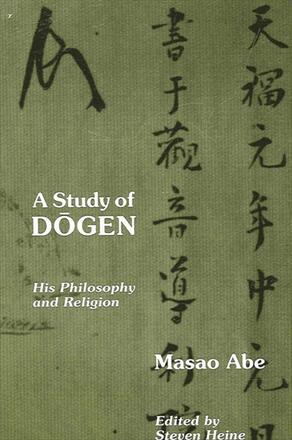
A Study of Dōgen
His Philosophy and Religion
Alternative formats available from:
Description
This complete translation of Masao Abe's essays on Dogen probes the core of the Zen master's philosophy and religion. This work analyzes Dogen's formative doubt concerning the notion of original awakening as the basis for his unique approach to nonduality in the doctrines of the oneness of practice and attainment, the unity of beings and Buddha-nature, the simultaneity of time and eternity, and the identity of life and death. Abe also offers insightful, critical comparisons of Dogen and various Buddhist and Western thinkers, especially Shinran and Heidegger.
Masao Abe is Professor Emeritus of Nara University of Japan, and has taught Buddhism and Japanese philosophy at Columbia University, University of Chicago, Princeton University, Claremont Graduate School, University of Hawaii, Haverford College, among others. Steven Heine is Assistant Professor of Religion at Pennsylvania State University. He is the author of Existential and Ontological Dimensions of Time in Heidegger and Dogen also published by SUNY Press, A Blade of Grass: Japanese Poetry and Aesthetics in Dogen Zen, and A Dream Within a Dream: Studies in Japanese Thought.
Reviews
"This book is about the central ideas of the most important Buddhist spokesman in Japanese history and is written by one of the most respected and authoritative of his interpreters. It reflects a lifetime of knowledgeable and concerted thinking about Dogen. " — Francis H. Cook, University of California, Riverside
"It is a truly outstanding contribution to Dogen scholarship as well as East-West comparative philosophy by one of the most distinguished modern Japanese thinkers of our time. This makes for a powerful and truly illuminating volume. " — Steve Odin, University of Hawaii
"This is a crystal-clear handling of extremely difficult subject matter. The analyses are subtle and at the same time lucid. The author has a profound and brilliant understanding of Dogen and Shinran and is also well-grounded in Western philosophy and religion. " — Joan Stambaugh, Hunter College